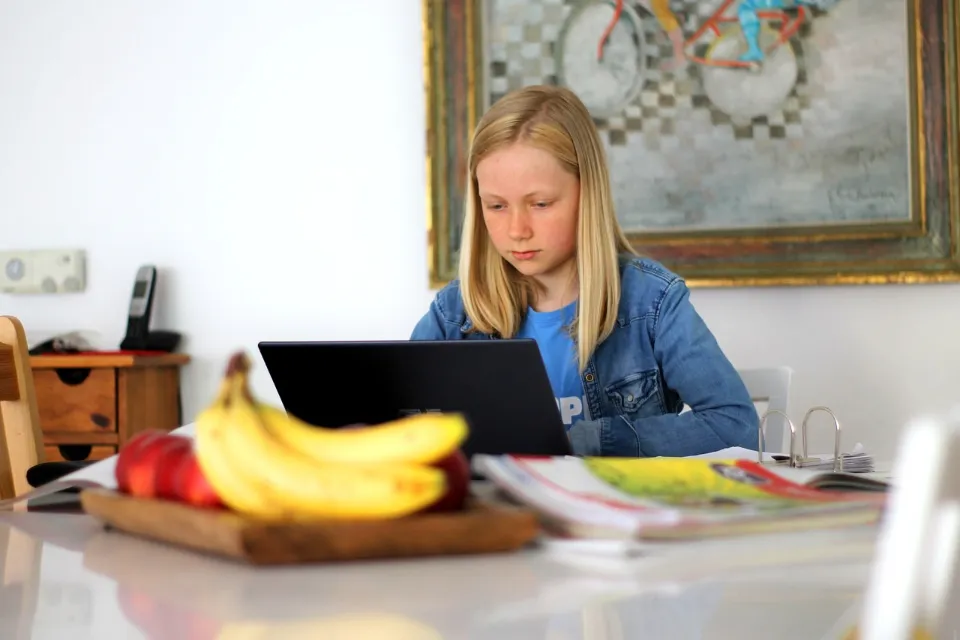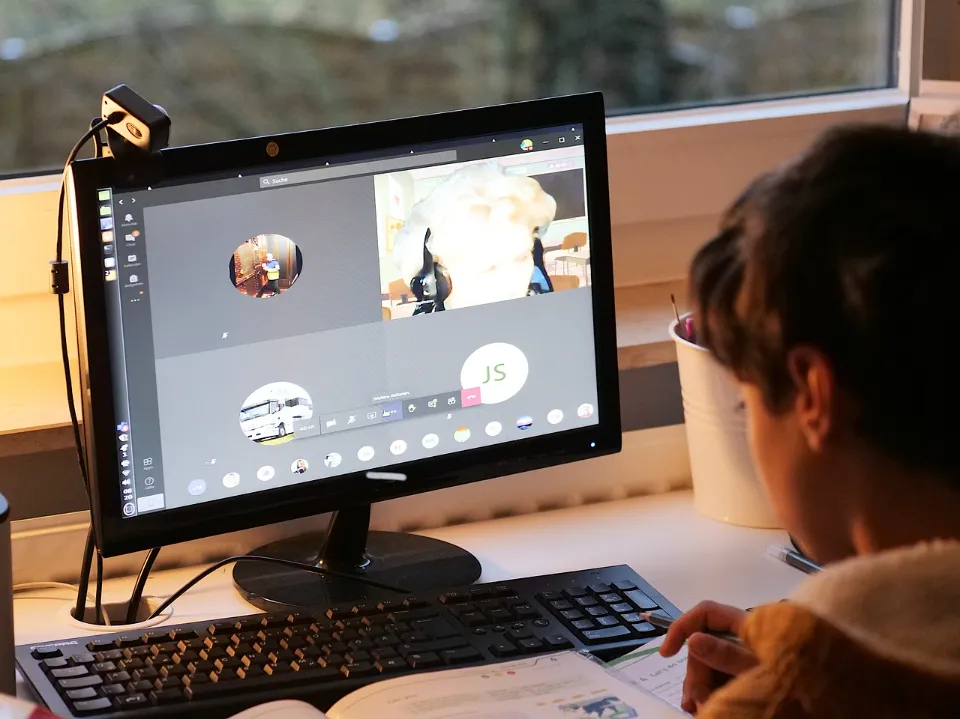
When Should You Start Homeschooling? The Most Suitable Age
The best age and time to begin homeschooling your preschoolers will be discussed in this post.
Knowing when to introduce a new concept to your child can be challenging when you are considering teaching them at home. You might believe that it is never too early to begin educating your child or that schools are doing everything correctly.
What is the ideal age to begin homeschooling? What actually matters is whether they demonstrate signs of school readiness. You can start homeschooling at any age. There are different needs for different age groups.
In this manual, we share more information with you!
When Should You Start Homeschooling?
Your child will ultimately determine the ideal age.
You have already been teaching your child at home – you helped them to walk and talk. You have been naming things, demonstrating colors, and introducing them to the outside world. Homeschooling is a natural extension of this when they are ready for it.
Show them letters if you believe they would find them interesting. discussing where grandmother resides? Take a look at a map, then cuddle up and read a book. Try out some of these concepts and exercises.
That is all there is to it, yes, really. Teaching your child at home doesn’t have to be “school.” An official curriculum is not required. Children are always eager to learn new things.

However, if you start pushing them too soon, they’ll get annoyed and lose interest.
When children are young you should keep any ‘formal’ learning sessions short and sweet – and use their never-ending interest in everything to show and tell them all about things. The amount of learning that happens every day will astound you.
Your child will tell you when he is ready to do more. And now is the ideal time to advance! The only person who truly knows your child is you. Trust your instincts to recognize the signs and decide when to start homeschooling your child.
Signs of Homeschooling Readiness
As your child’s advocate, you are probably already closely observing any indications that they may be ready for school. Perhaps you have already noticed that they are more interested in books, enjoy crafts on their own, and even inquire about school.
Related: When is Homeschooling the Right Choice for You and Your Child?
All of these achievements could signify that a child is ready for school. Here are 10 additional indicators you can watch out for in your child to see if they are prepared to start a homeschooling curriculum, based on our own research and experience.
- Do they feign reading?
- Can they make their own decisions and carry them out?
- Do they feign writing?
- Can they carry out two or three instructions in a row?
- Do they show evidence of listening comprehension?
- When reading aloud, do they appear interested or engaged?
- Are they capable of maintaining focus?
- Does the idea of directional reading make sense to them?
- For instance, holding a book upright, correctly turning the pages, reading from left to right, and so forth.
- Do they understand and communicate their needs and feelings?
- Do they appear to have a passion for words and letters?
- Specifically, demonstrating print awareness means being able to string letters together to form words and having a basic understanding of how individual letters sound.
- What is their approach to switching to new tasks?

Other Factors to Keep in Mind
You shouldn’t base your decision to begin homeschooling the child’s education primarily on the child’s age. You should think about these things in addition to the child’s readiness for school before deciding whether to homeschool your child.
Family Support
It’s important to start a conversation about homeschooling your child with your family, spouse, or partner. After all, homeschooling can be very boring.
Everyone in your family will need to put in time, effort, and dedication toward it in addition to you. For homeschooling to be successful, you need their backing.
Related:
- Do You Get Paid to Homeschool? 10 Easy Ways to Get Paid
- Is Homeschooling More Expensive Than Public School?
- Is Homeschooling Hard? How To Deal With the Challenges?
Your Personality
You must determine whether you have the right temperament to succeed at homeschooling. Are you genuinely interested in spending time with and instructing your kids? Can you exercise patience? What type of personality are you? Homeschooling might be a great fit for you if you love working with children and teaching.
You should also consider why you decide to teach your children at home. The degree of your commitment is also determined by your motivation. When homeschooling your child, if you’re not sufficiently motivated, you might slack off.
Schedule
Your daily schedule must be taken into account. Do you work a full-time job or do you have daily errands and chores to take care of for your family? Is it still possible for you to homeschool your child given your current workload or schedule?
Is It Better to Start Early?

Your younger children may show an interest in participating in the school day if you are already homeschooling an older child. Even if you didn’t begin homeschooling your older child at such a young age, it can be advantageous, to begin with your other children earlier.
Children go through cognitive and developmental phases at each stage of childhood, and a lot of this happens naturally.
Before the age of seven, learning happens in a more informal setting and is frequently accomplished through play and enjoyable activities. By having your child attend kindergarten at home, you can encourage their independent learning and prevent them from being pressured to take on tasks they aren’t yet prepared to handle.
You are laying the groundwork for your child’s future ability to learn skills and knowledge at this point in their early education.
The best strategy for teaching younger children is to keep formal learning sessions brief and focused instead on finding ways to turn ordinary experiences into instructive opportunities.
You might want to switch to traditional schooling at that point or keep homeschooling as your children get older and are more prepared to pursue formal education. Whatever your child needs is what matters.
Homeschooling at Different Ages
Without a doubt, homeschooling promotes values that value individualized learning over mass-mediated and traditional education. Homeschooling is becoming more and more popular all over the world as a form of alternative education.
Homeschooling After Pre-school
As parents have not yet thought about homeschooling, many times children are sent to preschool. Play and exercises for gross motor skills are how children age 2 to 5 learn. Kids start learning the alphabet, shapes, and numbers around the age of five.
Playing with other children is the most crucial aspect of beginning preschool. When parents choose to homeschool their children, this can be the most traumatic aspect (see the section below on “making the transition”).

Homeschooling After Elementary Schooling
The 5 to 11-year-olds demonstrate their independence even at school thanks to a foundation in preschool and kindergarten and progressing to the elementary school level. Choosing to homeschool your child at this age may also be challenging.
The decision to homeschool the child may seem strange to them because they are used to the school setting.
Some aspects to take into consideration include the following:
- Level of kid’s independence
- Their independent thinking skills
- Their learning style
The information above will show how homeschooling must be implemented. Additionally, parents should be aware that after a child enrolls in a school, they must formally withdraw before beginning homeschooling.
Homeschooling is a little more difficult after elementary school (ages 11 to 15) because even the authority of parents or teachers may be questioned. Parents might even begin to question their capacity to support homeschooling. In order to enhance learning, a network of homeschooling options, including co-ops, is available.
The 15–18-year-old homeschooler who attended elementary school can gain from discovering their talents and learning independently, away from peer pressure. Many see homeschooling as a first step toward promoting lifelong learning at this point.
However, transitioning to homeschooling can be unsettling from a traditional public or private school setting. The child may drive the choice or the parent may. Though it might not be an easy adjustment. Of course, a seamless transition is a goal.
Conclusion: Start Homeschooling
One of the movements that are expanding the quickest both domestically and globally is homeschooling. Schools are still being chosen at this time for younger students. High school students are choosing to homeschool more frequently though.
Homeschooling with a more structured curriculum can begin at any age, but the requirements for keeping track of school attendance vary by state, city, and town. Always remember that learning can begin at any age, regardless of what you choose.
FAQs
What Age Do Most Homeschoolers Graduate?
While it is sometimes even younger, a fair number of homeschoolers graduate at 16; more commonly, they are on track to graduate at 18 like their schooled peers. Many homeschoolers also complete high school with an additional year, finishing at age 19, just like many of their school-age peers.
What State Homeschools the Most?
Alaska at the top makes sense but North Carolina coming in second place is surprising to me. There, almost 5% of kids are homeschooled, whereas West Virginia, which came in third, has a rate that is more like 50%!
How Do I Start My First Day of Homeschooling?
- Not everything should be taught on the first day. It’s ok to gradually get back into your regular school schedule.
- Take a picture.
- Make a special breakfast plan.
- Plan a fun activity.
- Complete an All About Me interview.
- Don’t forget to make plans for lunch.
- Read together.
- Get the kids moving.


